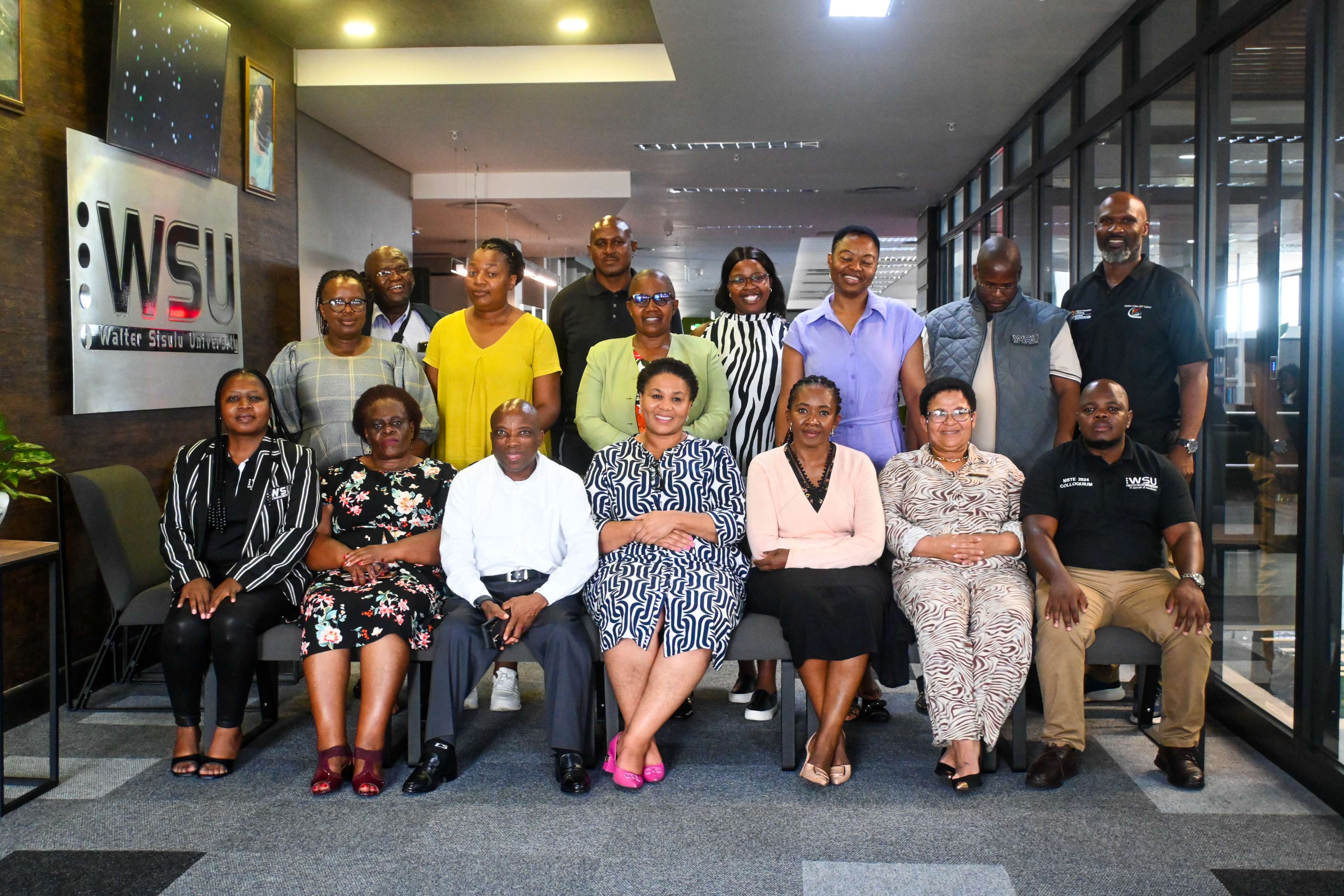FACULTY OF EDUCATION ADVANCES WORK INTEGRATED LEARNING FOR STUDENT TEACHERS

Walter Sisulu University's Faculty of Education has taken bold steps to improve Work Integrated Learning (WIL) for the faculty’s student teachers through various stakeholder collaborations.
A two-day roundtable discussion themed ‘Synergy in WIL: From Policy to Implementation’ was hosted by the faculty in collaboration with the Eastern Cape Department of Education, the EC Community Education & Training College, and the South African Council for Educators.
The roundtable sought to address challenges, share insights, and forge solutions to enhance the WIL experience for student teachers.
Faculty Executive Dean, Professor Bongani Bantwini said: “Our faculty’s mission has always been to produce competent, innovative, and socially responsive educators, and thus Work-Integrated Learning (WIL) is a cornerstone of this vision. WIL ensures that the learning experiences of our students transcend the boundaries of lecture halls and resonate within the real-world contexts they will serve.”
In previous years, students arranged their own WIL placements, leading to challenges such as unsuitable schools and inaccessible locations.
Acting Coordinator for WIL in the faculty, Nontuthuzelo Ngubane outlined the transformative changes underway.
"One of the significant changes is aligning policy with national and global standards to create an implementation tool for WIL. This ensures our students engage in activities that meet compliance standards, enhancing their graduate attributes and employability beyond the Eastern Cape," said Ngubane.
Ngubane asserted that in the past, students had placed themselves in schools where conditions compromised their training.
With the new system, placements will be coordinated by the faculty, through verified, traceable data about each student’s location.
Additionally, the university is also enhancing student support during placements. Key initiatives include stipends, access to psychological and wellness services, and improved accommodations for students with disabilities.
“We have a committee focused on student support, addressing issues like accommodation, psychological challenges, and anxiety in new contexts. We are working with student affairs, wellness, safety, security, and the counseling center to ensure faculty coordinators have access to services and key contact people in each center,” Ngubane said.
A total of 1846 students will be placed by the faculty in 2025, including second year students, who will undergo a pilot placement for three weeks, as well as Senior students who will have placements ranging from four to ten weeks.
“Effective WIL implementation requires a united front among policymakers, academic institutions, schools, and community partners. Today and tomorrow, we aim to strengthen these partnerships, share insights, and co-create strategies that will elevate the standard of teacher education and, ultimately, the quality of education in our schools,” Bantwini remarked.
By Yanga Ziwele
